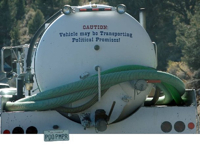 If you don’t think story-line matters in instructional materials just look at the pie fight over evolution in Texas. At its root this is a battle over which story we use to make sense of how we got here. Advocates on both sides will be unhappy with this characterization – for them the fight is over the truth. My goal in this piece is not to take sides in this argument (I do have one) but to talk about the power of story-line in instruction.
If you don’t think story-line matters in instructional materials just look at the pie fight over evolution in Texas. At its root this is a battle over which story we use to make sense of how we got here. Advocates on both sides will be unhappy with this characterization – for them the fight is over the truth. My goal in this piece is not to take sides in this argument (I do have one) but to talk about the power of story-line in instruction.
“And The Moral of the Story Is…”
Theories, metaphors, legends, myths, etc. are all attempts to impose order on our perception of the world. These stories give us a shared shorthand to help us make decisions about how to think and act. Without the moment of “oh this is like the time when x did y in the story about z” we’d forever be stuck deciding what to do next – stories help us be efficient. It is so wired that our brains even make up stories when we are sleeping – dreams may not make literal sense to our left brain but our pattern seeking right brain has the steering wheel during those hours.
One of the challenges of publishing in a world of standards designed by committees is that it is often hard to detect the broad story-line since those standards represent a series of compromises. This is particularly problematic in arenas where fundamental questions are discussed (like evolution). We end up with the intellectual equivalent of milk toast rather than chewy rye.
 This is very similar to the critiques heard frequently in the blogosphere about the “he said she said” nature of TV reporting where every issue has to have two equal sides. As Daniel Moynihan quipped “people are entitled to their own opinions, but not their own facts.” The credibility of TV reporting suffers because we know at a deep level that the way they present things is not real. Many instructional materials suffer from the same credibility destroying “balance.”
This is very similar to the critiques heard frequently in the blogosphere about the “he said she said” nature of TV reporting where every issue has to have two equal sides. As Daniel Moynihan quipped “people are entitled to their own opinions, but not their own facts.” The credibility of TV reporting suffers because we know at a deep level that the way they present things is not real. Many instructional materials suffer from the same credibility destroying “balance.”
If we look outside of education at the arenas where people get their information they are all dominated by story-lines – TV, books, video games, movies, blogs, and arguably twitter (@ingenbio is active again – great use of twitter to tell a story). But – when we publish textbooks we run from story-lines to avoid controversy.
The Problem
As a publisher, the business case for avoiding many story-lines (and the controversy that comes with them) is pretty compelling. We can’t afford to alienate factions on the decision making committees. Bland is safe. Publishers are lining up to print something that will cover the bases in Texas.
Many educators are wary of stories because they have frequently been used to impose one perspective. This approach can stray into outright propaganda. Just because something is presented as a story-line does not mean it is true, or good, or useful (the Nazi’s had a strong story-line).
But, looking at it from an instructional perspective, avoiding story-line removes one of the most powerful teaching tools we have. Story-line taps a fundamental structure of the mind. We end up with a meandering thread of facts and fictions that don’t hang together.
We end up with the modern textbook. Meh.
Fear vs. Trust
It strikes me that the motivating force to avoiding strong story-lines in instructional materials is fear. Fear that learners will accept as truth ideas which we might see as dangerous. Fear that the teacher won’t be equipped to get students to probe deeply and develop critical thinking. Fear that a teacher will propagandize students. Fear that we will lose the sale to a safer alternative. Fear that our world view might not be as solid as we want/need it to be.
Actions motivated by fear almost always make the world a smaller place. Bland instructional materials avoid controversy, but they are not as effective as they could be. In the global economy we can’t afford to sacrifice effectiveness to fear.
The opposite of this kind of fear is trust. Trust that learners can critically judge information. Trust that teachers will respect different view points. Trust that our worldview can be challenged and that we can grow if needed. Trust that our materials will be effective enough that we can win business against “safer” alternatives. When we trust our world gets larger but we wade into controversy, we embrace debate, and we challenge ourselves to grow. This isn’t always fun, but it is more effective in the long run because it makes us stronger.
Most schools expose students to the story-line the Nazi’s spun along with the facts of what transpired when people acted on it. There is deep learning in this approach. In this case, presenting them with the story and facts serves as an intellectual inoculation. If we shrink in fear that some students might find that story compelling (sadly some will) we avoid the larger benefit of a shared understanding that we need to fight this kind of thinking when we encounter it again (sadly we will).
Reading the Tea Leaves
 I suspect we will see strong story-lines creeping back in via non-traditional media first. Look to formats like video games which are inherently story telling platforms (even if it is as silly as getting the jewels from the lobster people to free the princess). I believe the engagement that comes from a good story is part of the reason games have shown disproportionate impact on struggling learners – the story gives their mind something to adhere to as the learning is going on. This binding thread is missing in the textbooks which have failed these students.
I suspect we will see strong story-lines creeping back in via non-traditional media first. Look to formats like video games which are inherently story telling platforms (even if it is as silly as getting the jewels from the lobster people to free the princess). I believe the engagement that comes from a good story is part of the reason games have shown disproportionate impact on struggling learners – the story gives their mind something to adhere to as the learning is going on. This binding thread is missing in the textbooks which have failed these students.
As starting points look to Chris Dede’s work on River City or Constance Steinkuhler’s work on scientific discourse in World of Warcraft for more on this. Go visit the nutrition area on Whyville where students get their avatars purposely ill to learn what healthy eating looks liike. Heck – look at the enduring success of Oregon Trail.
This isn’t an easy problem to solve. Traditional publishers will follow the lead of the market even when there is compelling evidence to support change. Educators operate in a political arena that makes controversial innovation difficult.
What should Texas do regarding the Evolution controversy? If we operate from trust students should be exposed to all the competing story-lines and they should be presented in their strongest contexts (e.g. evolution in the science classroom, creationism in comparative religion). From this robust exchange students should be free to weave their own story together in a way that makes their lives meaningful. If we don’t trust them to do this we make their world a smaller place.
———–
Related Post Developing Reading Fluency = Grinding in Video Games
Relevant Excerpt – “Many (not all) low performing students don’t have a story thread in their lives that helps motivate them to grind in school (doing homework). Students who are high achievers generally have a story line that is central to their identity that gives the grind meaning and a purpose. Without that story line much school work is just tedium.”
———–
Other Resources
“The Power of Story: Teaching Through Storytelling” (Rives Collins, Pamela J. Cooper)
“The Power of Story: Change Your Story, Change Your Destiny in Business and in Life” (Jim Loehr)
 The Education Business Blog
The Education Business Blog

